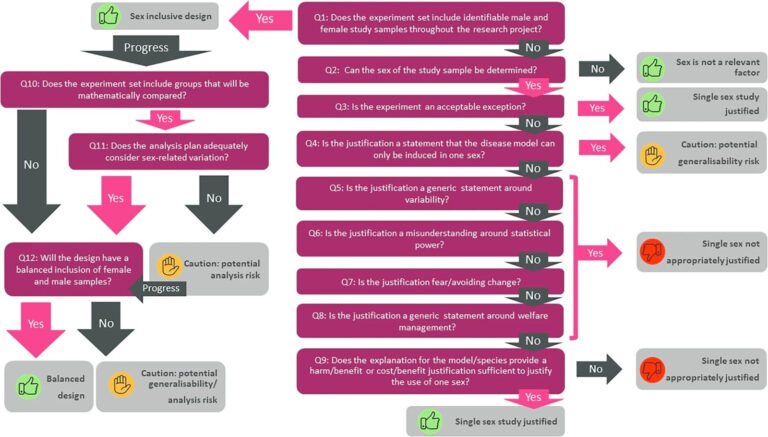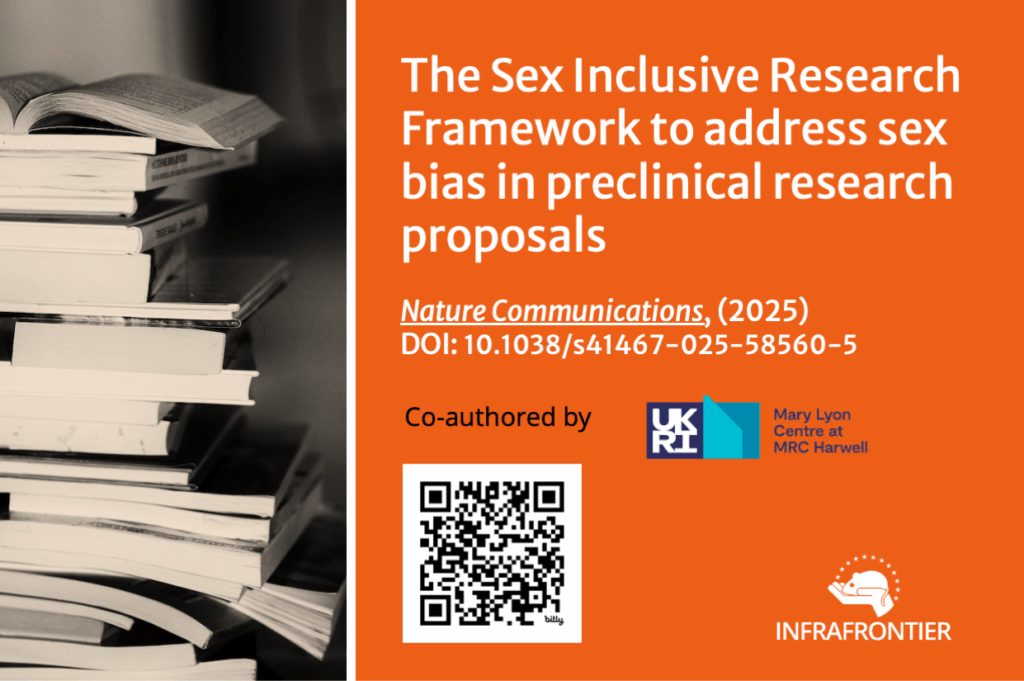New Framework Aims to Eliminate Sex Bias in Preclinical Research
Sara Wells (Mary Lyon Centre at MRC Harwell) has recently collaborated on a publication addressing sex bias in preclinical research: “The Sex Inclusive Research Framework to address sex bias in preclinical research proposals.”
A group of researchers and policy leaders from organisations involved in in vivo and ex vivo research have unveiled a transformative tool to assist scientists, policy makers, funders and reviewers in eliminating persistent sex bias in biomedical research. Published in Nature Communications, the Sex Inclusive Research Framework (SIRF) introduces a structured and interactive approach to ensure equitable inclusion of male and female samples in preclinical studies.
Preclinical research has long favoured male animals and cell lines, leading to a skewed knowledge base that does not represent the human population. Consequently, it leads to non-optimal use of animals and resources as it ultimately results in less reliable data and less successful therapeutic interventions. Despite mandates by funding bodies to include female and male samples, many research proposals fall short due to ingrained misconceptions and inconsistent evaluation standards.
SIRF, now available as an interactive tool or downloadable resource, addresses these gaps with an intuitive, traffic light–based decision tree that evaluates the appropriateness of sex inclusion in experimental design. Developed through collaboration across academia, industry, funding agencies, and animal welfare organisations, the framework assesses whether proposals include balanced sex representation and appropriate analysis plans, and whether single-sex studies are scientifically justified.
Sara Wells, Director of the Mary Lyon Centre. commented: “Sex has now been shown to be a fundamental piece of the data variability puzzle, and the SIRF framework supports the community in assessing where its inclusion is essential, as well as providing resources for adequate data analysis. The implementation of the framework will contribute to the community’s drive for more relevant, translatable data and effective uses of both animals and financial resources as we strive for more successful therapeutics.”

Original publication:
Karp N A, Berdoy M, Gray K, … Wells S et al. The Sex Inclusive Research Framework to address sex bias in preclinical research proposals. Nature Communications (2025). DOI: 10.1038/s41467-025-58560-5
